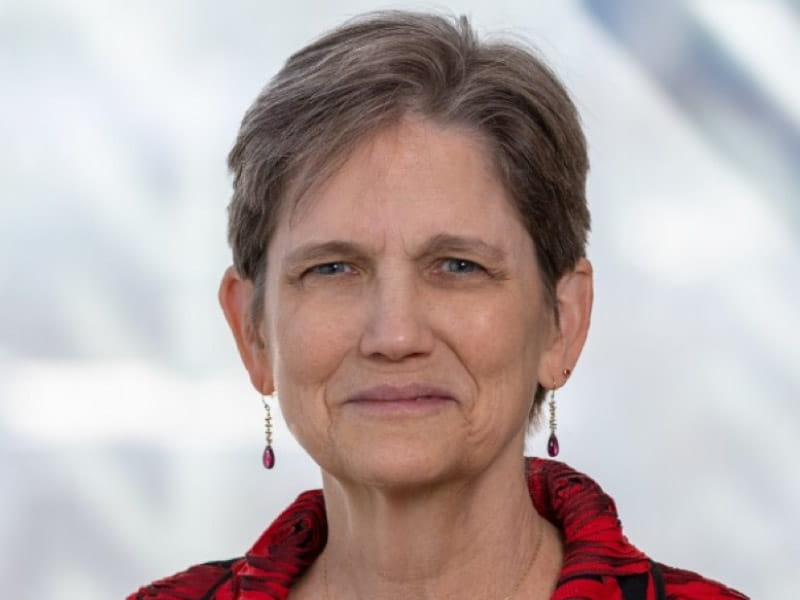Honoree promotes health equity through decades of research and mentoring

Looking back, Dr. Emelia Benjamin believes the first of her many accolades for research, mentorship and education sparked her lifelong passion for medicine.
"I was named science student of the year in seventh grade, and I still remember the distinct satisfaction of being a girl and earning that award," she said.
The recognition motivated her to overcome obstacles in a male-dominated field and become "an elbow-grease queen" who works hard with high standards.
"I have consistently been underestimated my entire career," Benjamin said. "When you have some setbacks and challenges, it forces you to be more focused and it also makes you say, 'I don't want anybody else to be left behind.'"
For her dedication to making sure others are included, Benjamin is this year's recipient of the Louis B. Russell Jr. Memorial Award. The American Heart Association presents the award annually for outstanding service to under-resourced communities. She will be honored May 2 during the AHA's online National Volunteer Awards ceremony, which begins at 6 p.m. CDT and is open for public viewing.
The award's namesake, who in 1968 was the 34th person to undergo a heart transplant, survived more than six years — a world record at the time. Russell was an active AHA volunteer who wanted other Black men and women to understand heart disease prevention. He dedicated his time to educate his and other under-resourced communities before dying in 1974.
As a cardiologist, Benjamin promotes inclusion at Boston Medical Center, the largest safety net hospital in New England; about 73% of patients live in low-income areas. And as a professor of medicine at Boston University Chobanian & Avedisian School of Medicine and epidemiology at Boston University School of Public Health, she advocates for diversity and equity to overcome health care inequities.
The AHA's focus on advancing public health is one reason why Benjamin has been an active volunteer since 1992. One of her first roles for the AHA was speaking about women and heart disease. At the time, the topic had limited research because heart problems were still believed to affect mostly men.
Since then, she has worked to ensure diversity throughout the AHA, including on scientific councils and at science meetings. She has also advocated for including more women and other underrepresented populations in every aspect of science and medicine.
"Research can't just focus on procedures and drug discoveries," she said. "In order to address real change in health outcomes, we need to address social drivers of health to address fundamental structural issues."
In her illustrious career, Benjamin has authored more than 800 peer-reviewed publications on research inequities, genetics, epidemiology and prognosis of a variety of cardiovascular disease conditions.
She's also associate provost of faculty development for Boston University Chobanian & Avedisian School of Medicine, where she helps lead programs for early-career, mid-career, underrepresented individuals and women.
"Diversity is a broader issue than gender or skin pigmentation," she said. "If we want to have a great field of medicine, we need to embrace diversity. A diverse team has more creative friction because we don't see things the same way. But diversity of thought is much more important when your goal is excellence."
Also, Benjamin has formally mentored 50 trainees and faculty and many more informally. She's also mentored countless AHA volunteers.
"There's the science side of mentoring, then there's the how-do-I-get-through-life side of mentoring," she said. "Both of them are important. The biggest joy I get is seeing my mentees succeed and knowing I played a little teeny, tiny part by supporting them."
Since 1996, Benjamin has contributed to the National Heart, Lung, and Blood Institute's Jackson Heart Study, which examines how Black people are disproportionally affected by cardiovascular disease.
As an international expert on atrial fibrillation, or AFib, she has researched its risk factors, heritability, genetics and increased risk of heart failure and death.
Benjamin is also a Framingham Heart Study investigator and has received funding from the National Institutes of Health since 1988 for grants related to AFib, vascular function, inflammation, mobile health and chronic pain.
Her work has earned her multiple recognitions, including the Gold Heart Award in 2016, the AHA's highest volunteer honor; the Alliance for Academic Internal Medicine's Diversity, Equity and Inclusion Award in 2020; and the AHA's Distinguished Scientist Award in 2022.
Despite her success, Benjamin said she never approaches her work thinking about recognition — including this year's Louis B. Russell Jr. Memorial Award.
"I was shocked and humbled," she said. "You don't get awards like this on your own. You get awards like this working with amazing people and building teams. There were parts of my career when I felt really alone, and my goal is to make sure everyone is supported and knows what it takes to be successful."




